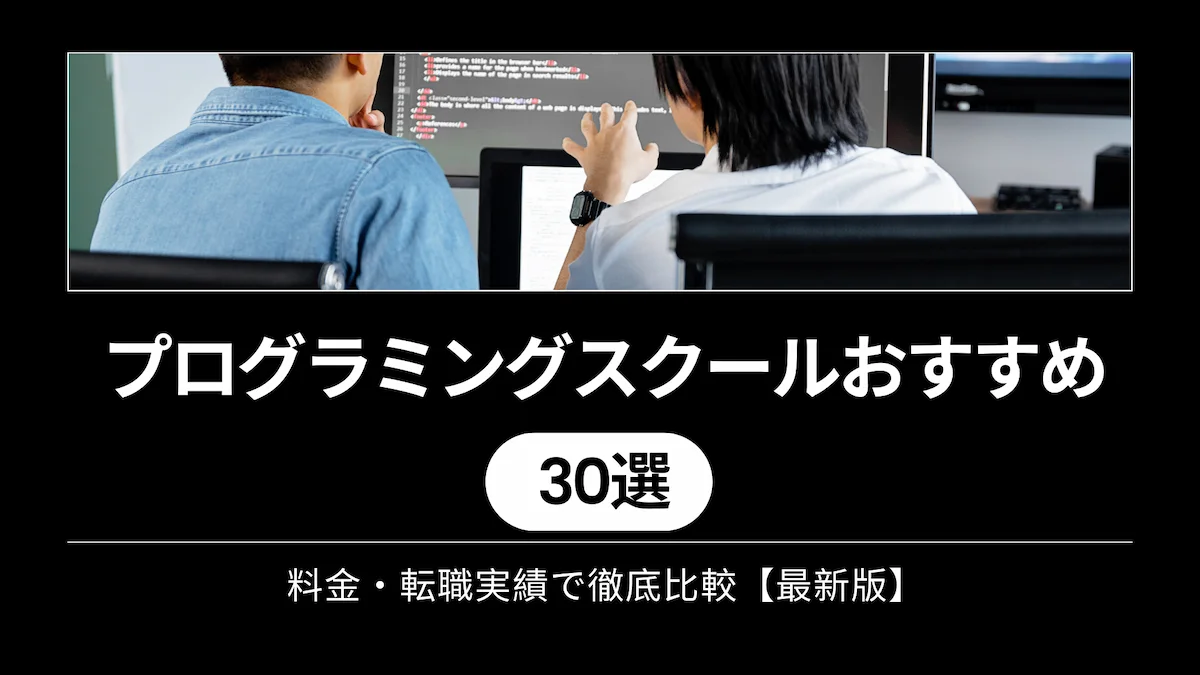In Japan’s IT industry, the demand for foreign engineers is rapidly increasing, but what skills are required for foreign engineers to succeed in Japanese IT companies?
While environments where technical skills can help you thrive regardless of language barriers are emerging, you must also be mindful of approaches beyond technical skills for long-term success.
This article explains the five essential skills needed to succeed in Japanese IT companies and practical success strategies.
- Key skills for foreign engineers in Japanese IT companies
- Strategic Japanese language improvement approaches
- Career advancement tactics in Japanese work environments
1. Current Status of Foreign Engineers in Japanese IT Companies

In recent years, the demand for foreign engineers in Japan’s IT industry has been rapidly increasing.
Amid a serious talent shortage, highly skilled foreign engineers are being recognized as valuable assets for Japanese IT companies.
Particularly, hiring engineers with expertise in cutting-edge technology fields has become essential for maintaining corporate competitiveness.
Growing Trend in Foreign Engineer Recruitment
The recruitment of foreign engineers in Japan’s IT industry has shown remarkable growth in recent years. As a countermeasure to the serious IT talent shortage, many companies are actively recruiting overseas talent.
Diversification of talent with global expansion in mind is also an important factor, and securing specialized talent in cutting-edge technology fields such as AI and blockchain has become urgent.
Furthermore, the spread of remote work has relaxed geographic constraints, enabling more flexible recruitment.
What Japanese Companies Expect from Foreign Engineers
What Japanese companies seek from foreign engineers is not just technical skills.
- Advanced specialized technical skills
(especially expertise in AI, cloud, and security fields) - Global perspective and innovation capabilities
- Teamwork and communication skills
- Adaptability in multicultural environments
- Continuous learning motivation
When these elements are combined, engineers are evaluated as truly valuable talent.
The Reality of Balance Between Technical Skills and Japanese Language Skills
In actual recruitment situations, the importance of technical skills and Japanese language skills varies greatly depending on the company.
Global companies like Rakuten, LINE, and Mercari primarily communicate in English and tend to prioritize technical skills. In these companies, Japanese language ability is not a mandatory requirement.
On the other hand, traditional Japanese companies require basic Japanese communication skills, and they emphasize a balance between technical skills and Japanese language proficiency. In cases where customer interaction is necessary, advanced Japanese language skills may be required.
2. Five Essential Skills Foreign Engineers Should Acquire

To succeed in Japanese IT companies, a comprehensive skill set including not only technical skills but also cultural understanding and adaptability is necessary.
Below, we will explain in detail the five particularly important skills.
How to Enhance Technical Skills Valuable in Business
Technical skills in high demand in today’s IT industry include programming languages (Java, Python, Ruby, Go), cloud platforms (AWS, Azure, GCP), AI/machine learning frameworks, security technologies, and agile development methodologies.
To improve technical skills
Participating in open-source projects, technical study groups, and conferences is effective.
You can also develop practical skills by utilizing online learning platforms while working on personal projects.
Adaptability to Japanese Business Culture
Understanding and adapting to Japan’s unique business culture is important for foreign engineers.
- •Practicing “Ho-Ren-So” (Report-Contact-Consult)
- Understanding collective decision-making processes
- Importance of understanding implicit communication and context
- Grasping seniority-based hierarchical structures
To adapt to these cultural elements, active interaction with Japanese colleagues, participation in business manner training, and deepening observation and understanding of cultural differences are effective.
Cross-Cultural Communication Skills
For effective cross-cultural communication, understanding non-verbal communication, consideration of cultural differences, and clear and concise expression skills are important.
■ For smooth and effective communication with Japanese people:
- Utilize regular one-on-one meetings
- Actively create presentation opportunities within the team
- Improve written communication skills and actively seek feedback
Team Collaboration and Project Management
For effective collaboration in Japanese team environments, building responsibility and trust relationships is essential. It’s important to be mindful of effective information sharing, actively participate in problem-solving, and be conscious of contributing to team goals.
In project management… schedule management, risk management, quality management, and stakeholder management skills are required.
Attitude Toward Continuous Learning and Self-Development
For long-term success, it’s important to maintain an attitude of continuous learning and self-development. Being evaluated for continuous growth in the rapidly changing IT industry leads to positive evaluations.
■ Key points for effective learning
- Keeping up with the latest technology trends
- Improving business skills
- Continuously improving Japanese language ability is necessary.
■ Specific learning methods
- Utilizing online learning resources
- Regular reading of technical books
- Participating in industry seminars
- Utilizing mentorship, etc.
■日本でエンジニアとしてキャリアアップしたい方へ
海外エンジニア転職支援サービス『 Bloomtech Career 』にご相談ください。「英語OK」「ビザサポートあり」「高年収企業」など、外国人エンジニア向けの求人を多数掲載。専任のキャリアアドバイザーが、あなたのスキル・希望に合った最適な日本企業をご紹介します。
▼簡単・無料!30秒で登録完了!まずはお気軽にご連絡ください!
Bloomtech Careerに無料相談してみる
3. Strategic Methods for Improving Japanese Language Skills

Japanese language skills are an important element in career building for foreign engineers in Japan.
However, the required Japanese level varies by job type and company, so a strategic approach is necessary.
Understanding efficient learning methods and practical application methods makes more effective skill improvement possible.
Japanese Language Level Necessary for Technical Communication
The Japanese language level needed for technical communication varies greatly depending on the job.
However, many companies consider it desirable to have acquired around Japanese Language Proficiency Test (JLPT) N2 level.
| Backend Development | Frontend Development | Project Manager |
|---|---|---|
| ◎ JLPT N3-N2 level | ◎ JLPT N2 level | ◎ JLPT N2-N1 level |
| Reading technical documentation, basic communication within the team, and understanding feedback in code reviews are required. | Detailed meetings with designers and detailed discussions about UI/UX may be necessary in some cases. | Negotiation with clients and understanding and explaining complex requirements may be necessary in some cases. |
Reference: Japanese Language Proficiency Test (JLPT): Certification Guidelines
Efficient Japanese Language Learning Approach
A systematic learning approach is important for efficient Japanese language improvement.
Online Learning Using
Japanese learning apps, online tutors, and listening to technical podcasts are effective.
Workplace Practice
Active participation in morning meetings, creating technical documents in Japanese, and practicing through lunch conversations with Japanese colleagues are effective.
Reading technical books in both English and Japanese versions, writing technical blogs in Japanese, and giving Japanese presentations at technical study groups also help improve Japanese language skills in technical contexts.
How to Find Environments Where You Can Thrive Even Without Perfect Japanese
It’s also important to choose the optimal workplace environment according to your Japanese language ability.
- Global Companies
They have English-centered environments, cultures that value diversity, and often provide gradual Japanese language acquisition support - Foreign-Affiliated Companies
Bilingual environments are established, with merit-based evaluation and opportunities for international projects - Startup Companies
They have flexible language environments, cultures that emphasize technical skills, and provide abundant growth opportunities
4. Behavioral Guidelines to Accelerate Success in Japanese Companies

For success in Japanese IT companies, understanding organizational culture and appropriate behavioral guidelines are essential in addition to technical skills.
Building trust relationships, understanding evaluation systems, and effective networking play important roles in accelerating your career.
Communication Techniques for Building Trust Relationships
Understanding and practicing Japan-specific communication methods are important for building trust relationships.
Regular sharing of progress, early reporting of problems, and consultations including solutions – active reporting, contacting, and consulting are required.
Non-verbal communication such as appropriate facial expressions and gestures, observing the other person’s reactions, and reading the atmosphere of the situation are also important.
In written communication, concise and clear writing, effective use of diagrams and tables, and emphasizing important points are effective.
How to Respond to Japanese Company-Specific Evaluation Systems
Understanding and appropriately responding to Japanese companies’ evaluation systems is important for career building.
- Technical Evaluation
Deepening expertise, problem-solving ability, and technical contribution level are emphasized - Team Contribution
Quality of teamwork, proactivity in knowledge sharing, and supporting members are evaluated - For appropriate self-promotion
Visualizing achievements, regular activity reports, and implementing improvement proposals are also important
Building Internal Networks for Career Advancement
Building effective internal networks greatly contributes to career development.
It’s important to build broad relationships through hosting technical study sessions, actively participating in internal projects, and cross-functional cooperation.
Building relationships with experienced seniors, utilizing regular one-on-one meetings, and career consultations are also effective.
It’s recommended to actively participate in community activities through utilizing internal SNS, participating in interdepartmental exchange events, and hosting knowledge-sharing sessions.
■日本でエンジニアとしてキャリアアップしたい方へ
海外エンジニア転職支援サービス『 Bloomtech Career 』にご相談ください。「英語OK」「ビザサポートあり」「高年収企業」など、外国人エンジニア向けの求人を多数掲載。専任のキャリアアドバイザーが、あなたのスキル・希望に合った最適な日本企業をご紹介します。
▼簡単・無料!30秒で登録完了!まずはお気軽にご連絡ください!
Bloomtech Careerに無料相談してみる
5. Success Stories and Lessons from Foreign Engineers

From the cases of foreign engineers who have actually succeeded in Japan’s IT industry, you can learn specific strategies and approaches.
By understanding the success factors in each environment, it becomes possible to effectively build your own career path.
Below, we introduce success stories in different corporate environments and important lessons learned from them.
Success Stories in Global Companies
Success in global companies hinges on proving technical skills and utilizing an international perspective.
Many successful individuals have raised their evaluations through obtaining international certifications, notable achievements in internal projects, and contributions to innovation.
Particularly noteworthy are experiences leading multicultural teams and successful cross-border project achievements.
■ Example of a Chinese Engineer Working in a Global Company
By demonstrating excellent leadership in a project coordinating development teams in Japan, China, and the US, they received high evaluations for problem-solving with a global perspective. This enabled them to establish a position as a global project manager.
Success Points in Traditional Japanese Companies
Cultural adaptation ability plays an important role in success at traditional Japanese companies.
Deep understanding of Japanese business customs and building long-term trust relationships are required.
■ Example of a Vietnamese Engineer Working in a Traditional Japanese Company
While maintaining a strong sense of contribution to the organization, they contributed to improving team culture by introducing new methodologies with a global perspective. They were particularly evaluated for contributing to the improvement of the entire team’s performance by proposing efficient development methods while respecting the Japanese organizational culture.
Development Cases for Entrepreneurship and Freelancing
Independence as an entrepreneur or freelancer is also an important career development option. For success, accurate understanding of market needs and building a strong network are important first steps.
■ Example of a Korean Engineer (Freelance)
They established a technical consulting company leveraging their experience in Japanese companies. By establishing expertise in specific technology fields, building diverse client portfolios, effective self-branding, and leveraging their strength in understanding both Japanese and Korean markets, they were able to establish a unique position.
6. Acquiring Skills to Succeed as a Foreign Engineer in Japanese IT Companies
To succeed in Japanese IT companies, it’s important to combine high technical skills as a foundation with cultural understanding and appropriate communication skills.
Strategic approaches according to the environment and continuous self-development to increase your value as global talent are the keys to long-term success.



















